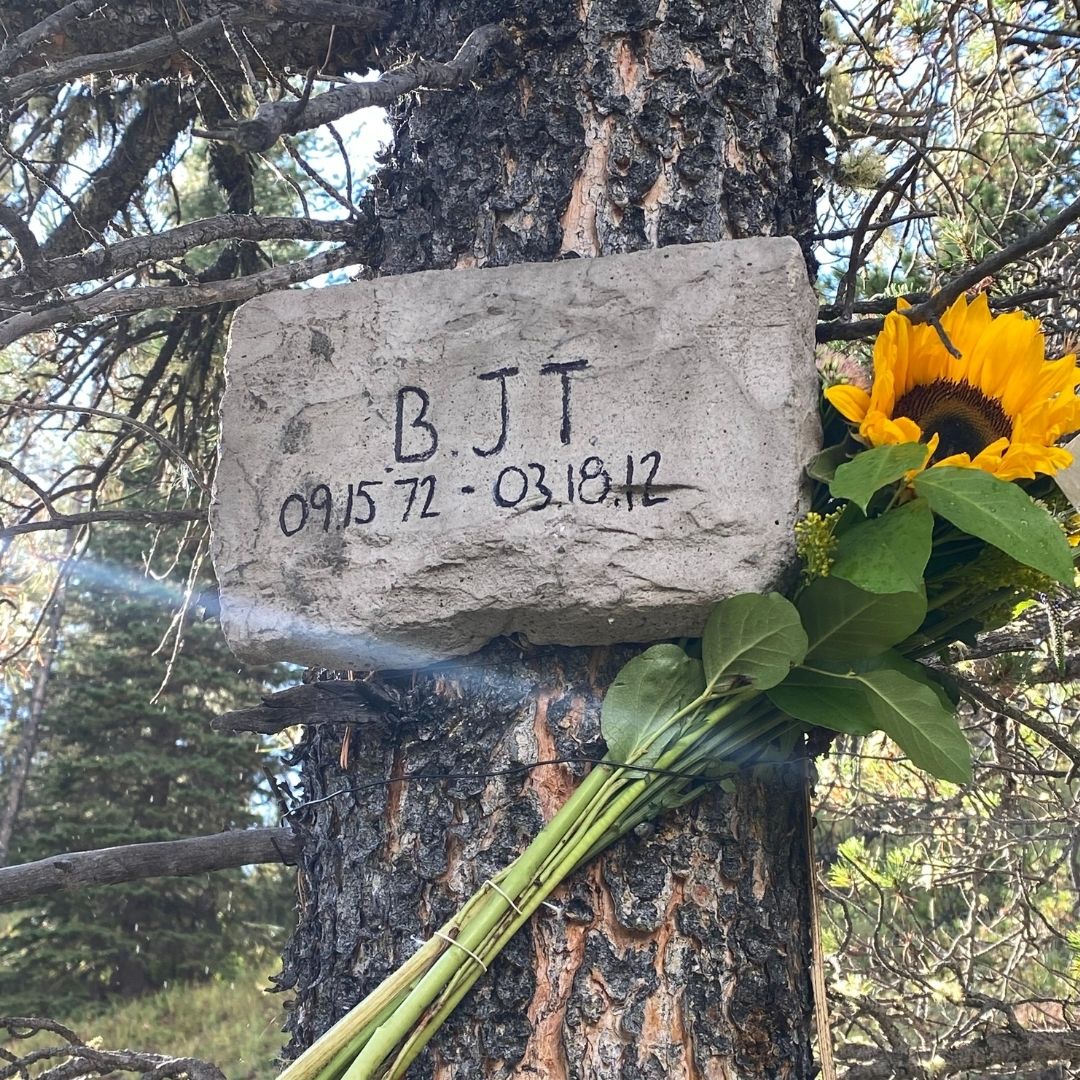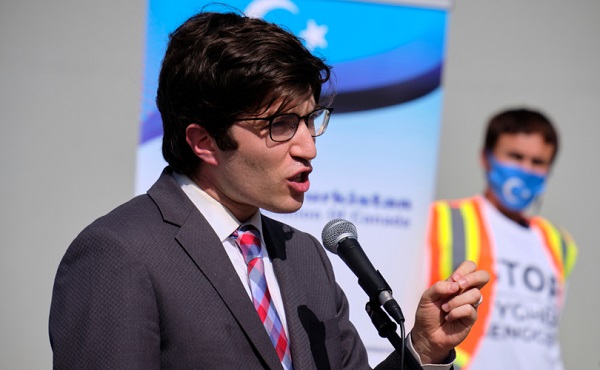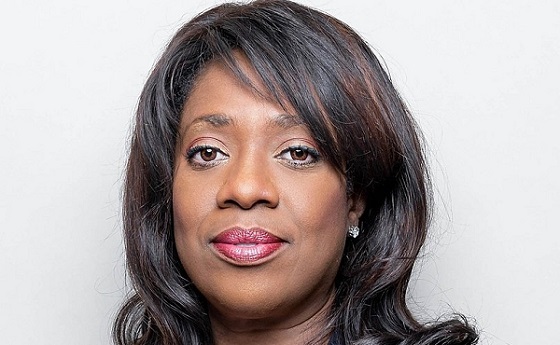conflict
Stigma of Addiction and Mental Illness is Alive and Well, Even in Our Own Families.

In five days, my brother Brett will be 50 years old. It should be a huge party with love, laughter, family, and friends. But there will be no party.
I can still hear it ringing in my ears, “Your brother was a junkie who deserved to die.”
Anyone who loves or has lost someone addicted to drugs or alcohol has heard this very statement in some form or another. Many times. It can often be ignored. Tolerated. Accepted. Maybe someone hasn’t said it to you directly, in those exact words, but you hear them loud and clear. And so does our loved one.
I don’t typically react, it’s not my style; after all it is a waste of valuable energy for me to scream and challenge every person with whom I come into contact. I am confident not only in who I am and my belief that addiction and mental illness are diseases, but also in who my brother was.
Everyone can be pushed past their limits. To where they have had enough. They’re hurt. Frustrated. And they need to stand up for what they believe is right, when someone else can’t find the courage to have a voice of their own. Not because I’m fighting my brother’s battles; after all we are no longer two- and six-years-old playing in the neighborhood sand box. But rather because I have walked this painful road, witnessed the judgment and because of that I see the world in a more empathetic way.
I remember vividly my mother and I sitting for about an hour, waiting for my brother to be seen in emergency. His leg rattled with anxiety until he was taken into a private room. We explained to the nurse that Brett was severely intoxicated and needed help to safely withdraw off the alcohol, not that we needed to as his situation was very clear from his scruffy appearance and glassy eyes. And she began to take his vitals.
It wasn’t the nurse’s cold, disassociated approach while taking my brother’s blood pressure, pricking his arm with a needle, or asking him how much he had had to drink that made my blood boil. It was the fact that it was obvious she absolutely loathed him. For the first time ever, like a bolt of electricity running through my veins, I felt judgment—exactly what my brother must have felt. Pure unadulterated judgment. As she left the room, I scampered quickly behind her, catching up in front of the nurse’s station.
“Excuse me,” I said. She didn’t hear me so I repeated myself. She turned around to look at me.
“Hi. Listen, I don’t mean to be rude. I completely understand and appreciate how hard your job is and how many different things you must see. I even get that on some level maybe to you my brother isn’t sick in the same way as most of the people here, and that you believe this may be purely self-induced. What I need to remind you is that he is a human being.”
She didn’t blink.
I continued, “Now I don’t care what you did yesterday or how you are tomorrow. All I care about is that for right now, when you come into that room, you show a little compassion as that is a person in there. A person! That is someone’s brother, someone’s son. And despite what you very obviously perceive as completely disgusting, someone loves him. Do you think you can do that?”
I didn’t give her time to answer.
“’Cause if you can’t, then what I suggest is that for the next hour or so you FAKE IT!”
I walked away, so I didn’t have to look at her stony expression for another second. Before stepping through the door to sit quietly in the corner of my brother’s room, I caught my breath as I was so overwhelmingly pissed off.
I understand and appreciate how hard nurses work—after all, our mother is a nurse—and I can imagine that they see all sorts of things. But that’s their job, a job that they choose. To treat someone very obviously, whatever their circumstance, like they are below dirt, I cannot take. As I looked at my brother at his worst, just as I had done so many times before, all I thought was he is in there.
The doctor arrived a short time later. I knew the drill; it seemed like I had heard this a thousand times before. They couldn’t keep Brett overnight as all the beds were full, although I appreciate the doctor did give him a shot of Valium. At least I think it was Valium, which by then I knew belongs to the class of medications called benzodiazepines. It is used for the short-term relief of symptoms of mild to moderate anxiety and for alcohol withdrawal. Mom and I knew that at least it would help Brett get through the night and the suggestion the doctor offered was for us to head back to the detox center in the morning.
What most people don’t know is that people with severe addiction can actually die from the effects of withdrawal. Whether you want to challenge your mind with that truth or not, the choice debate doesn’t work here: they cannot just stop. My brother needed medical supervision and help as he came off the booze. Normally it would take four to six days in which he would be given things like Valium to ease his way through the excruciating pain and suffering of the withdrawal process. Alcohol is actually one of the most dangerous substances to come off. People addicted to alcohol can experience symptoms like nightmares, vomiting, diarrhea, shivering, sweating, racing heart, fever, shaking, tightness in the chest, and difficulty breathing.
That is if things go well.
If things go badly, our loved ones can have a stroke, a heart attack, or a grand mal seizure. During withdrawal, long-term alcohol users can suffer psychosis that manifests as hallucinations and delusions, which is why they need to be monitored by a health care professional. Delirium tremors (DT’s) can sometimes be associated with severe, uncontrollable tremors of the extremities and secondary symptoms such as anxiety, panic attacks, and paranoia. All these realities. And yet we are once again being sent on our way as all the beds were full.
It seemed like a completely different nurse came into the room, yet it wasn’t. She was kind, compassionate, and caring, and as we left, she said to my brother, “Take care of yourself, Brett.”
I whispered, “Thank you” to her as we walked out the door, and I hope she knew how much I meant it.
My magnificent, smart, witty, handsome, kind, soft-spoken, and much-loved brother took that first sip of alcohol in high school, as most of our own young children will do some day. Sadly, he lost his battle with severe substance use and mental health issues on March 18, 2012 when he took his own life. I remember very vividly a few months after he passed away, someone in our close family circle was standing in my office and he said directly to me, “Your brother was a junkie who deserved to die. He had more than enough chances.”
I could be rattled, offended, shocked; I could have screamed, yelled, and told him to get the hell out of my office. But I didn’t. Instead, I calmly took a sip of my coffee, said a little “hmmm” to myself and changed the topic. I assure you it was not because I am quiet, scared, or I didn’t know what I wanted to say. But rather the opposite as I am confident, bold, outspoken, and unapologetically honest.
I have no interest in getting into a war of words. I have grown and learned so much since that hospital room visit more than fifteen years ago. I have learned that stigma is alive and well, not only in the healthcare profession. In society. In the media. And even in our own families and circle of friends.
I am not shocked nor surprised that we live in a world where some believe this statement about my brother and others battling addiction. It surprises me that we live in a world where it is acceptable to say it out loud. That somehow, it is all right to inflict intentional pain on someone who has lost someone who they love very much.
My approach is choosing to dedicate my time and energy into calmly and confidently sharing my journey and experience, every uncomfortable piece of it, without shame. The truth is I have been surrounded by alcoholism my whole life; it is on many branches of my family tree. But what I experienced with my brother; most could not fathom. I feel that if people hear the whole story, beginning with us as innocent children, it might open their hearts, change their perceptions, and perhaps give understanding and compassion for people with addiction and mental health challenges in society—our mothers, fathers, husbands, wives, daughters, sons, brothers, sisters, cousins, uncles, aunts, grandparents, friends, and neighbors.
For me, I am not going to spend my life arguing, debating, letting people break my spirit for what I know and believe with all my heart. What I remind myself when I share our story to enlighten others is that this way of thinking and speaking about Brett with hurtful, condemning statements is not at all about my brother’s character or who he was; it is about theirs.
Sending love, light and strength when you need it to everyone, on this Sat, September 10th, World Suicide Prevention Day.

Artificial Intelligence
AI Drone ‘Swarms’ Unleashed On Ukraine Battlefields, Marking New Era Of Warfare


From the Daily Caller News Foundation
Artificial intelligence-powered drones are making their first appearances on the battlefield in the Russia-Ukraine war as warfare creeps closer to full automation.
In bombardments on Russian targets in the past year, Ukrainian drones acting in concert were able to independently determine where to strike without human input.
It’s the first battlefield use of AI “swarm” technology in a real-world environment, a senior Ukrainian official and Swarmer, the company who makes the software, told the Wall Street Journal in a Tuesday report. While drones have increasingly defined modern battlefields, swarms until now had been confined to testing rather than combat.
“You set the target and the drones do the rest,” Swarmer Chief Executive Serhii Kupriienko told the WSJ. “They work together, they adapt.”
So far, the Swarmer technology has been used hundreds of times to target Russia assets, but was first used a year ago to lay mines on the front, the Ukrainian official told the WSJ. The software has been tested with up to 25 drones at once, but is usually utilized with only three.
Kupriienko told the WSJ that he was preparing to test up to 100 drones at once with the linking software.
A common arrangement used on the battlefield includes one reconnaissance drone to scout out the target and two explosive drones delivering the payload on target, the official told the WSJ.
While Western nations such as the U.S., France and the United Kingdom are also pursuing drone swarm technology, they have not deployed swarm technology on the battlefield the way Ukraine has, according to the WSJ. Currently, autonomous weapons are not regulated by any international authority or binding agreement, but ethical concerns around the technology has led many to call for increased regulation of weapons like the Swarmer system.
The Ukrainian Ministry of Foreign Affairs did not immediately respond to the Daily Caller News Foundation’s request for comment.
conflict
Trump Pentagon Reportedly Blocking Ukraine From Firing Western Missiles Deep Into Russia


From the Daily Caller News Foundation
The Department of Defense has spent months blocking the Ukrainian military from using American and British-made missiles to hit targets deep inside Russia, The Wall Street Journal reported Sunday, citing unnamed U.S. officials.
Undersecretary of Defense for Policy Eldridge Colby reportedly designed the procedure to review requests to carry out the long-range strikes with weapons that are either of U.S. origin or that require American intelligence or use components provided by the U.S., according to the WSJ. Secretary of Defense Pete Hegseth reportedly has the final say on whether Ukrainian forces can use the MGM-140 ATACMS (Army Tactical Missile System) to hit targets in Russia.
The reported blocks on missile strikes coincides with a Trump administration effort to broker a peace deal between Russia and Ukraine. A Pentagon spokesperson declined to comment further on the matter.
BREAKING: President Vladimir Putin reacts to B-2 Flyover pic.twitter.com/1mzVn7DxlW
— Jack Poso 🇺🇸 (@JackPosobiec) August 15, 2025
The Biden administration allowed Ukraine to carry out strikes with ATACMS in November, weeks after President Donald Trump won the 2024 election, the New York Times reported. Trump criticized the move during a December interview with Time magazine.
“It’s crazy what’s taking place. It’s crazy,” Trump said. “I disagree very vehemently with sending missiles hundreds of miles into Russia. Why are we doing that? We’re just escalating this war and making it worse. That should not have been allowed to be done.”
Trump and Russian President Vladimir Putin met in Alaska on Aug. 15 for a summit meeting during which Trump sought to secure a cease-fire in Russia’s war with Ukraine. As Trump greeted Putin, a B-2A Spirit stealth bomber and several fighters carried out a flyover of Elmendorf Air Force Base.
Trump met with Ukrainian President Volodymyr Zelensky and major European leaders on Aug. 18 to update them on the summit.
In July, Trump reached an agreement with NATO where members of the alliance would purchase weapons, including MIM-104 Patriot surface-to-air missiles, and donate them to Ukraine.
-

 COVID-198 hours ago
COVID-198 hours agoNew report warns Ottawa’s ‘nudge’ unit erodes democracy and public trust
-

 Bruce Dowbiggin2 days ago
Bruce Dowbiggin2 days agoBurying Poilievre Is Job One In Carney’s Ottawa
-

 Great Reset2 days ago
Great Reset2 days agoEXCLUSIVE: A Provincial RCMP Veterans’ Association IS TARGETING VETERANS with Euthanasia
-

 Health2 days ago
Health2 days agoDisabled Canadians petition Parliament to reverse MAiD for non-terminal conditions
-

 COVID-192 days ago
COVID-192 days agoCovid Cover-Ups: Excess Deaths, Vaccine Harms, and Coordinated Censorship
-

 Daily Caller2 days ago
Daily Caller2 days agoSpreading Sedition? Media Defends Democrats Calling On Soldiers And Officers To Defy Chain Of Command
-

 Crime1 day ago
Crime1 day agoHow Global Organized Crime Took Root In Canada
-

 Digital ID2 days ago
Digital ID2 days agoLeslyn Lewis urges fellow MPs to oppose Liberal push for mandatory digital IDs






